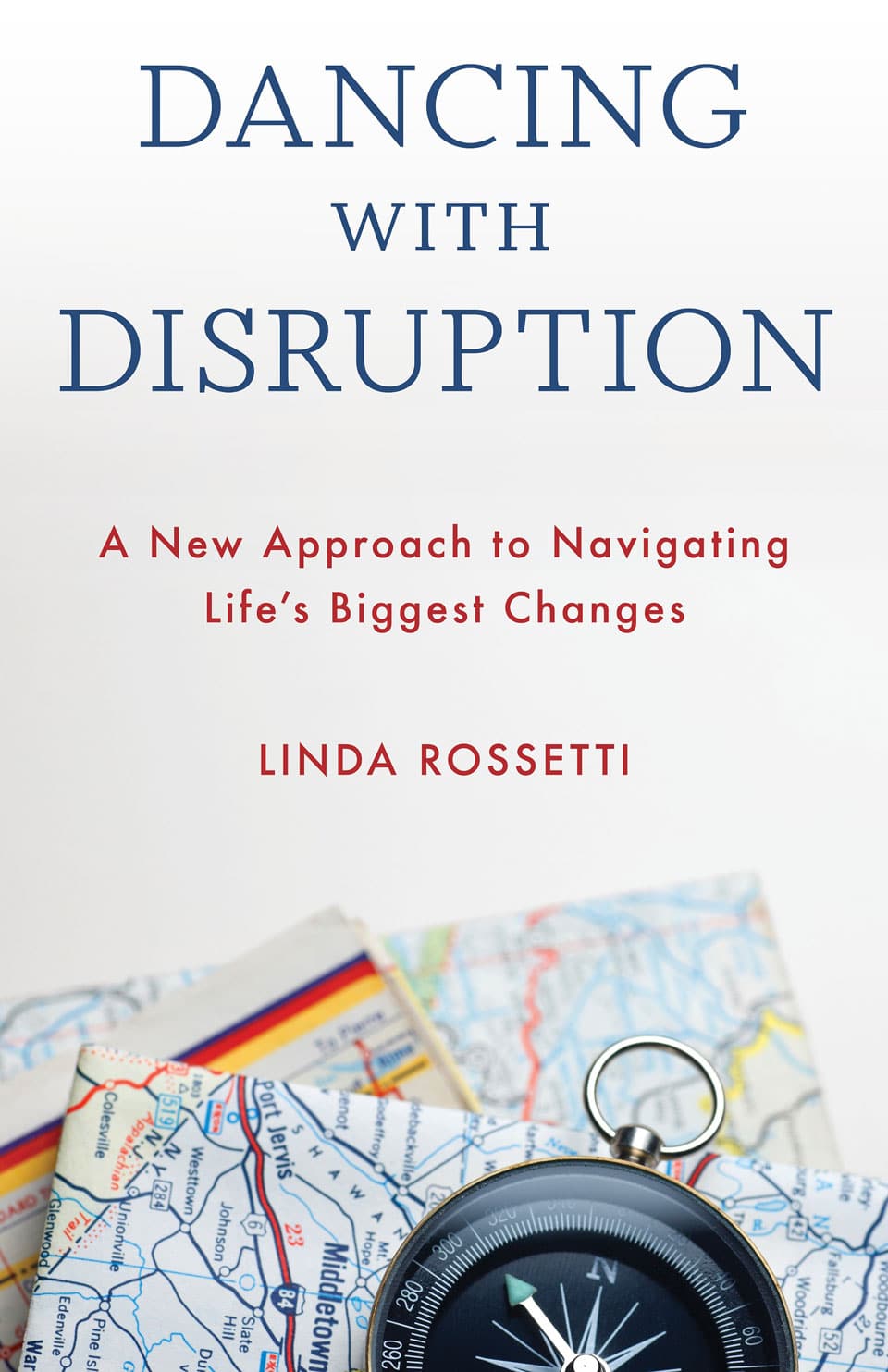Book Review: Dancing with Disruption: A New Approach to Navigating Life’s Biggest Changes

Linda Rossetti has made an exciting new career out of her experience with disruption. After experiencing an “unraveling” of her identity in her role as an executive vice president for human resources and administration at a Fortune 500 company — carrying responsibility for 21,000 people in 37 countries — she struggled with finding her “what’s next.” The disorientation of facing a blank slate led her to re-examine assumptions about herself and her perception of how she shows up in the world.
From the decades she spent in the business world, Rossetti had developed expertise in solving poorly defined problems. Uncertain where to turn, she began interviewing other people who had or were experiencing an upheaval in their lives, and took a deep dive into scholarly research about how shifts in our sense of self express themselves. Ultimately, she has become an expert in how to effectively embrace and navigate disruption.
Her new book, Dancing with Disruption, follows on the heels of her earlier book, Women and Transition: Reinventing Work and Life. Both are born out of her research and interviews with some 270 individuals experiencing transitions to describe how to empower ourselves in the face of uncertainty.
Rossetti addresses the resistance we meet when attempting to make changes in our lives — particularly emotional resistance — like anger, guilt, and regret. She has developed “the Incubator,” a four-step toolkit of sorts, that enables anyone facing disruption to make choices not from fear or limitation, but from a place of optimism, excitement, and courage. Her advice transforms what could be a terrifying and unsettling period in our lives into one of promise and enthusiasm.
Particularly as so many have experienced professional disruption resulting from the pandemic, Rossetti’s invitation to embrace times of transition as gateways for extraordinary possibilities in our lives is timely.

Differentiating between “change” and “transition,” she writes:
We often believe that we transition by leaving something. We leave a relationship, a way of being, or a city. In fact, departure alone does not accomplish a transition.…Transition differs from change because it requires us to re-examine our assumptions about who we are and how we make meaning in this world. This distinction is important. We can be forced to make many changes in our lives, whereas transition, or leading with who we are, is always a choice.
Courageously welcoming a time of transition allows us the space to reimagine our self-concept and redefine the narrative we use in talking about what we’re about. We give ourselves permission to be in a state of not knowing. As we begin to listen to our inner voice and connect to what holds value and meaning to us, we transform uncertainty into an enlivening and expansive opportunity that open up new, meaningful worlds to us.
Whether our life is disrupted by job loss, divorce, health issues, retirement, relocation, or some other upheaval, Rossetti affirms that, with a new set of tools and perspectives, what may seem terrifying and unsettling can morph into a time of promise that opens doors to unimaginable possibilities.
Have you read?
Wealthiest Sports Owners in the World?
World’s Richest Actors And Their Net Worth.
World Richest Tennis Players And Their Net Worth.
Richest NFL (National Football League) Players.
Top CEOs in Singapore, 2023.
Ready to join the CEOWORLD magazine Executive Council– Find out if you are eligible to apply.
Bring the best of the CEOWORLD magazine's global journalism to audiences in the United States and around the world. - Add CEOWORLD magazine to your Google News feed.
Follow CEOWORLD magazine headlines on: Google News, LinkedIn, Twitter, and Facebook.
Copyright 2025 The CEOWORLD magazine. All rights reserved. This material (and any extract from it) must not be copied, redistributed or placed on any website, without CEOWORLD magazine' prior written consent. For media queries, please contact: info@ceoworld.biz








